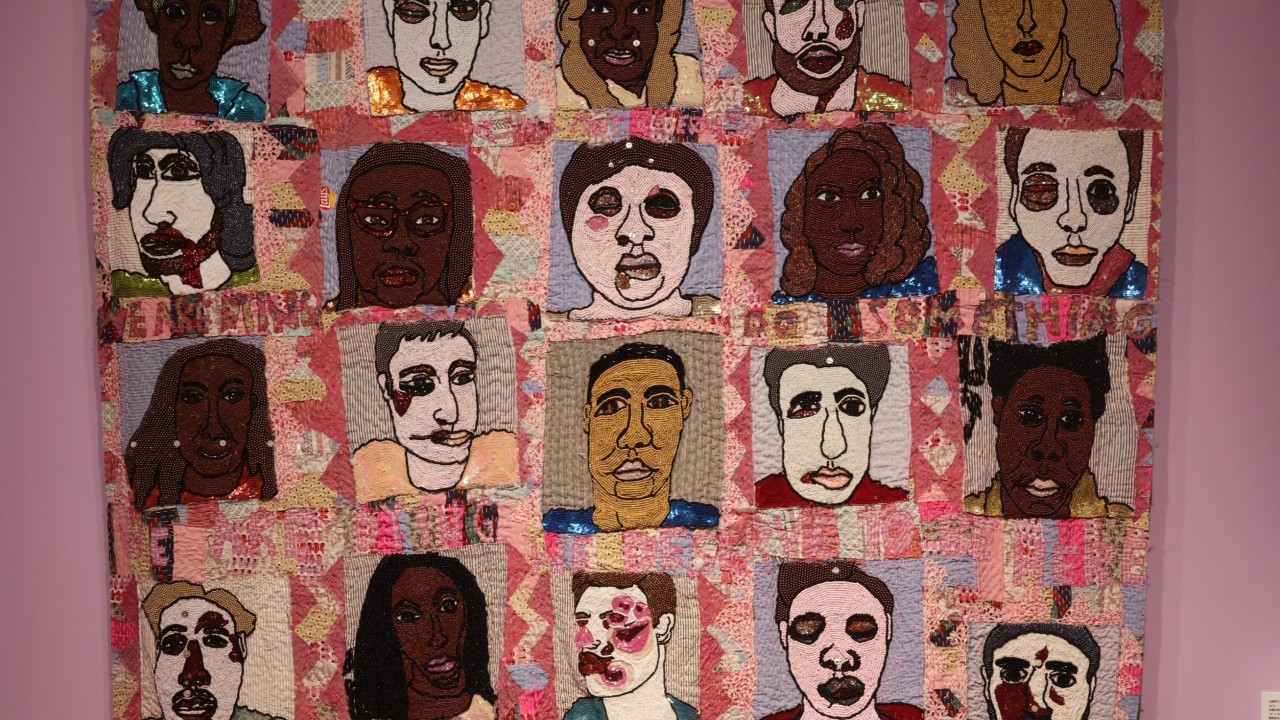La libertad
2016 - Film & Video (Film & Video)
Laura Huertas Millán
La libertad is a “greca” film, a meander film, with no beginning nor end, weaving together fragments of daily life at the Navarro´s, counting threads and time, wondering and wandering around words as emancipation, labor, and freedom (la libertad), the word that most appeared in our conversations. The “greca”, the meander, is the main symbol weaved in the textiles made by the Navarro sisters, from Santo Tomás Jalieza, México. A geometrical form of an endless braid of diamonds, the “greca” represents corn, an entity worshiped by the pre-hispanic civilisations of Mesoamerica. La greca stands for sustenance, but materialises as well the feminine power of producing abundance and fertility – the textiles displaying this ongoing motives could be read as invocations for life and growth. In the Navarro’s textiles, animals, objects and spaces are represented. Their fabrics are made in the backstrap loom, a prehispanic technique preserved by indigenous women for centuries. Through textiles, women have built the archives of a parallel history of Mexico’s crosscultural relationships, “mestizaje”, colonialism and modernity. Echoing the politics and ethics represented in the objects they weave, the Navarro have built an ecological and familiar micro society, longing for independence.
Laura Huertas Millán was born in Bogota, Colombia, and has been living in France since 2001. Her films and expanded cinema works consider aesthetics and politics through a range of narratives and formats. In 2009 she started a series of works around the notion of exoticism, shot between European tropical gardens and the Colombian Amazon, inspired by the poignant documents tracing the human zoos in France at the turn of the 20th century, cultural anthropophagy (as expressed by Oswald de Andrade in 1928) and explorer´s journeys accounts in America. The films of this exoticism series built dialectics between ethnography and colonialism, proposing hybrid narratives with no hierarchy between genres as science-fiction, surrealism, fantasy and documentary. Since 2012, Huertas Millán has been engaged in a practise-based PhD film research on “ethnographic fictions”, developing this paradoxical and ambiguous idea in a new series.
Colors:
Related works sharing similar palette
» see more

© » KADIST
Loris Gréaud
2004This work refers to the “Dream Machines”, an experimental object invented by the painter and writer Brion Gysin and the scientist Ian Sommerville, and which is composed of a light bulb with light passing through slits in a rotating cylinder...
Related works found in the same semantic group
» see more

© » KADIST
Fabien Giraud & Raphael Siboni
2015-In which predicting its past it lives working and dies fighting- Fifth episode of The Unmanned , “La Mémoire de Masse” unfolds during the second Canuts revolts in Lyon in 1834...

© » KADIST
Margo Wolowiec
2015Wolowiec’s textile work Not This Time (2015) translates pixelated images into sensuous fabric and ink based forms that are at once beautiful in their abstraction and anxiety-ridden in their visualization of a malfunctioning digital world...





